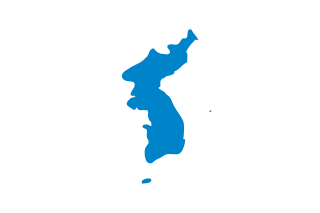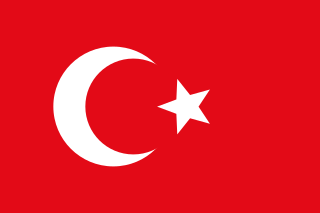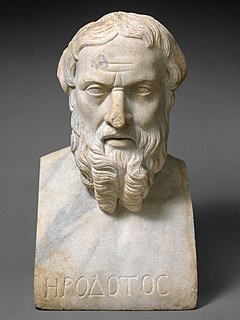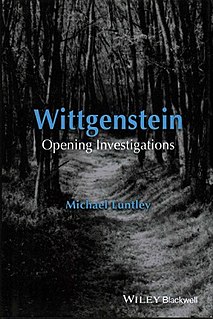Related Research Articles

Muhi al-Din Muhammad, commonly known by the sobriquet Aurangzeb and by his regnal title Alamgir, was the sixth emperor of the Mughal Empire, who ruled over nearly the entire South Asia for a period of 49 years. Widely considered to be the last effective Mughal ruler, Aurangzeb compiled the Fatawa al-Alamgir and was amongst the few monarchs to have fully established Sharia and Islamic economics throughout South Asia.

According to consensus in modern genetics, anatomically modern humans first arrived on the Indian subcontinent from Africa between 73,000 and 55,000 years ago. However, the earliest known human remains in South Asia date to 30,000 years ago. Settled life, which involves the transition from foraging to farming and pastoralism, began in South Asia around 7,000 BCE. At the site of Mehrgarh presence can be documented of the domestication of wheat and barley, rapidly followed by that of goats, sheep, and cattle. By 4,500 BCE, settled life had spread more widely, and began to gradually evolve into the Indus Valley Civilization, an early civilization of the Old world, which was contemporaneous with Ancient Egypt and Mesopotamia. This civilisation flourished between 2,500 BCE and 1900 BCE in what today is Pakistan and north-western India, and was noted for its urban planning, baked brick houses, elaborate drainage, and water supply.

Gaius Julius Caesar was a Roman general and statesman. A member of the First Triumvirate, Caesar led the Roman armies in the Gallic Wars before defeating his political rival Pompey in a civil war, and subsequently became dictator of Rome from 49 BC until his assassination in 44 BC. He played a critical role in the events that led to the demise of the Roman Republic and the rise of the Roman Empire.

Korea is a peninsular region in East Asia. Since 1945, it has been divided between two countries at or near the 38th parallel, North Korea and South Korea. Korea consists of the Korean Peninsula, Jeju Island, and several minor islands near the peninsula. The peninsula is bordered by China to the northwest and Russia to the northeast. It is separated from Japan to the east by the Korea Strait and the Sea of Japan.

In the history of Europe, the Middle Ages or medieval period lasted approximately from the 5th to the late 15th centuries, similar to the post-classical period of global history. It began with the fall of the Western Roman Empire and transitioned into the Renaissance and the Age of Discovery. The Middle Ages is the middle period of the three traditional divisions of Western history: classical antiquity, the medieval period, and the modern period. The medieval period is itself subdivided into the Early, High, and Late Middle Ages.

The Ottoman Empire was an empire that controlled much of Southeast Europe, Western Asia, and Northern Africa between the 14th and early 20th centuries. It was founded at the end of the 13th century in northwestern Anatolia in the town of Söğüt by the Turkoman tribal leader Osman I. After 1354, the Ottomans crossed into Europe and with the conquest of the Balkans, the Ottoman beylik was transformed into a transcontinental empire. The Ottomans ended the Byzantine Empire with the conquest of Constantinople in 1453 by Mehmed the Conqueror.

The Renaissance is a period in European history marking the transition from the Middle Ages to modernity and covering the 15th and 16th centuries, characterized by an effort to revive and surpass ideas and achievements of classical antiquity. It occurred after the Crisis of the Late Middle Ages and was associated with great social change. In addition to the standard periodization, proponents of a "long Renaissance" may put its beginning in the 14th century and its end in the 17th century.

The East India Company (EIC) was an English, and later British, joint-stock company founded in 1600. It was formed to trade in the Indian Ocean region, initially with the East Indies, and later with East Asia. The company seized control of large parts of the Indian subcontinent, colonised parts of Southeast Asia and Hong Kong, and kept trading posts and colonies in the Persian Gulf Residencies. At its peak, the company was the largest corporation in the world, competing with the Dutch East India Company, and had its own private army of around 260,000 soldiers, twice the size of the army of Britain.

India is a federal union comprising 28 states and 8 union territories, for a total of 36 entities. The states and union territories are further subdivided into districts and smaller administrative divisions.

"The Isis" is an alternative name for the River Thames, used from its source in the Cotswolds until it is joined by the Thame at Dorchester in Oxfordshire. It derives from the ancient name for the Thames, Tamesis, which in the Middle Ages was falsely assumed to be a combination of "Thame" and "Isis". Notably, the Isis flows through the city of Oxford.

The British Raj was the rule of the British Crown on the Indian subcontinent; it is also called Crown rule in India, or Direct rule in India, and lasted from 1858 to 1947. The region under British control was commonly called India in contemporaneous usage and included areas directly administered by the United Kingdom, which were collectively called British India, and areas ruled by indigenous rulers, but under British paramountcy, called the princely states. The region was sometimes called the Indian Empire, though not officially.

History is the study and the documentation of the past. Events before the invention of writing systems are considered prehistory. "History" is an umbrella term comprising past events as well as the memory, discovery, collection, organization, presentation, and interpretation of these events. Historians seek knowledge of the past using historical sources such as written documents, oral accounts, art and material artifacts, and ecological markers.
Alfred Harvey was an English footballer who made one appearance for England as a full back in 1881.

The Russian Empire, also known as Imperial Russia, was an empire that extended across Eurasia from 1721, succeeding the Tsardom of Russia following the Treaty of Nystad that ended the Great Northern War. The rise of the Russian Empire coincided with the decline of neighboring rival powers: the Swedish Empire, Poland–Lithuania, Persia, the Ottoman Empire, and Qing China. The Empire lasted until the Republic was proclaimed by the Provisional Government that took power after the February Revolution of 1917. The third-largest empire in history, at one point stretching over three continents—Europe, Asia, and North America—the Russian Empire was surpassed in size only by the British and Mongol empires. With 125.6 million subjects according to the 1897 census, it had the third-largest population in the world at the time after Qing China and India. Like all empires, it featured great economic, ethnic, linguistic, and religious diversity.

The Mughal Empire was an early modern Islamic empire in South Asia. For some two centuries, the empire stretched from the outer fringes of the Indus basin in the west, northern Afghanistan in the northwest, Kashmir in the north, Bangladesh in the east, and the uplands of the Deccan Plateau in South India.
Edwin Luntley was an English international footballer, who played as a right back.
Wittgenstein: Meaning and Judgement a book by British philosopher Michael Luntley, published in 2003 by Blackwell. The book provides a reading of Ludwig Wittgenstein's interpretation of the philosophical concepts of meaning and intentionality. The book received reviews from journals including Mind and Philosophical Investigations, along with being widely cited in its field.

Wittgenstein: Opening Investigations is a book by British philosopher Michael Luntley, published in 2015 by Wiley-Blackwell. The book provides a reading and reframing of Ludwig Wittgenstein's Philosophical Investigations. The book received reviews from journals including Notre Dame Philosophical Reviews, Philosophy, and The Philosophical Quarterly, along with being widely cited in its field.
The Meaning of Socialism is a book by British philosopher Michael Luntley, published in 1989 by Duckworth and in 1990 by Open Court. The book covers the meaning and philosophy of socialism. The book received reviews from journals including Reason Papers and American Political Science Review, along with being widely cited in its field.
